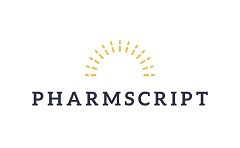2017-18 State Budget
On Tuesday, February 7, 2017 Governor Tom Wolf released the proposed fiscal year 2017-18 state budget. Governor Wolf’s budget proposes spending at a level of $32.3 billion, or a $571 million (or 1.8%) increase over the FY 16-17 budget. In fact, the Governor’s plan relies heavily on limiting spending in many areas, while finding as many efficiencies in government as is possible.
The budget called for NO funding increase for skilled nursing facilities.
PHCA issued a press release noting that “The proposed budget fails to adequately address the escalating costs of caring for this (Pennsylvania’s frailest and sickest residents) vulnerable population.”
Proposed budget items of note included:
- Medicaid Long-Term Care Funding: The Governor’s proposed budget again flat-funded Medicaid funding for nursing facilities. In addition, the Medicaid Access Add-On program, which directs funds to high Medicaid facilities, was again removed from the Governor’s proposed budget, forcing the legislature’s hand to add the dollars back.
- Department Consolidation: The Governor is proposing to consolidate the Departments of Health, Aging, Drug and Alcohol Programs and Human Services into a single agency. The consolidation is estimated to save the state $90 million annually. The details around the Agency consolidation will come out in the weeks ahead, and PHCA will ensure that we have a seat at the table for those discussions.
- Sales Tax: The Governor’s budget proposed to expand the sales tax to a few more services, but not long-term care, as in prior budget proposals, and adding a severance tax on natural gas.
- Business Taxes: The Governor is once again proposing to close the “Delaware loophole” by imposing combined reporting, starting on Jan. 1, 2019, on Pennsylvania businesses for Corporate Net Income (CNI). At the same time, the CNI would start to be reduced, with the current 9.99-percent rate dropped to 8.99 percent in 2019, then to 7.99 percent in 2020, 6.99 percent in 2021 and 6.49 percent in 2022 and thereafter.
- Minimum Wage: Additionally, the Governor has proposed an increase in Pennsylvania’s minimum wage, from $7.25/hr to $12.00/hr. His budget assumes almost $100 million in additional tax revenues from the increase in the minimum wage.
Visit the Pa Budget Office website to learn more about the proposed budget.
Should you have any questions or need additional information, please contact Zach Shamberg, Director of Advocacy and Legislative Affairs, at (717) 221-7934 or zshamberg@phca.org.


